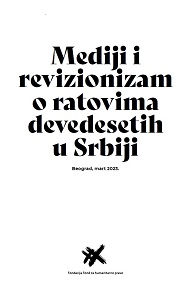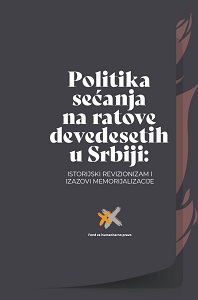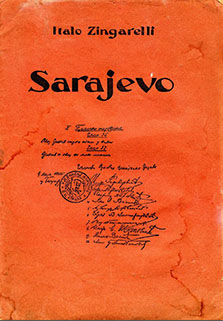
We kindly inform you that, as long as the subject affiliation of our 300.000+ articles is in progress, you might get unsufficient or no results on your third level or second level search. In this case, please broaden your search criteria.

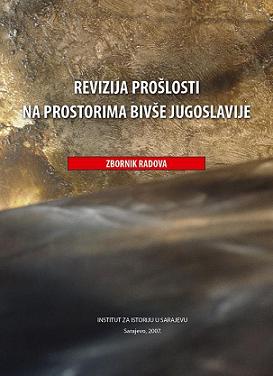
With contributions by Dževad Juzbašić, Husnija Kamberović, Vladimir Petrović, Aleš Gabrič,Damir Agičić,Gorgi Čakarjanevski,Boro Bronza,Seka Brkljača,Ivana Dobrivojević,Emily Greble-Balić,Bojan Godeša,Ivo Goldstein,Goran Hutinec,Nikica Barić,Sanja Petrović-Todosijević,Carl Bethke,Azem Kožar,Izet Šabotić,Fedžad Forto,Fikret Midžić,Vera Katz
More...
The author reflects upon the different models of historical revision used in post-Yugoslav countries (both contemporary and immediately postwar). He observes that in every post- Yugoslav country, the most common revision concerns events from the period when they all belonged to one state or, in other words, from twentieth-century Yugoslav History. Within these revisions, the most common theme is the Second World War.
More...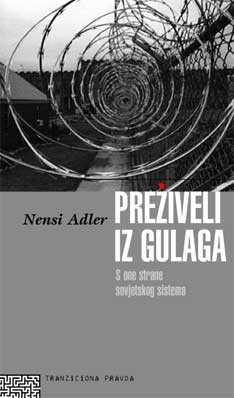
The Gulag Survivor – Beyond the Soviet System is the first book published in Ex-Yugoslavia to examine at length and in-depth the post-camp experience of Stalins victims and their fate in post-Soviet Russia. Based on extensive interviews, memoirs, official records, The Gulag Survivor describes what survivors experienced when they returned to society, how officials helped or hindered them, and how issues surrounding their existence evolved from the 1950s to the present.
More...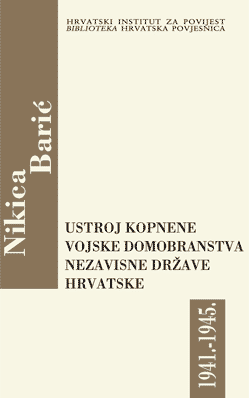
Home Guard (Domobranstvo) was the regular army of the Independent State of Croatia (Nezavisna Država Hrvatska, NDH), which was established in April 1941 after the Axis attack on Kingdom of Yugoslavia. NDH was ruled by the extreme right wing Ustasha movement headed by Ante Pavelić and its territory consisted of Croatia, Slavonia, Syrmia, Dalmatia and Bosnia and Herzegovina. Hungarians occupied and annexed Međimurje and Italians annexed parts of Croatian coast. A demarcation line divided NDH in German and Italian spheres of influence. Alongside with Home Guard, Ustasha militia was established as a military wing of the ruling Ustasha movement. Although Home Guard had air forces and navy, its ground forces were the most numerous and the most important. Tradition of the Croatian units of the Royal Hungarian Home Guard from the Austro-Hungarian Empire was often evoked after the establishment of NDH. Some Croats who were former Austro-Hungarian officers were also included in the Home Guard. Nevertheless, the basis for the formation of Home Guard were Croat and Bosnian Moslem officers and conscripts who had previously served in the royal Yugoslav army. The paramilitary units of the Croatian Peasant Party, the leading Croatian political party in the Kingdom of Yugoslavia, played an important role immediately after the proclamation of NDH. Elements of this para-military organization took part in the disarmement of the Yugoslav units. In late April 1941 one of its detachments was sent to Bosnia and Herzegovina to establish Croatian military organization in that area. Nevertheless, Ustasha were distrustful of this organization and it was soon abolished [...]
More...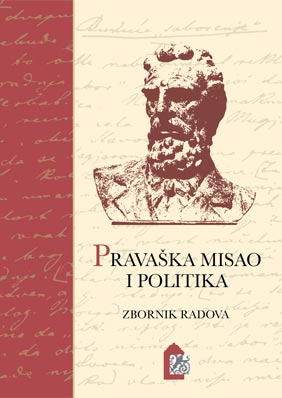
With contributions by Zlatko Hasanbegović, Mira Kolar-Dimitrijević, Stjepan Matković, Jure Krišto, Marko Trogrlić, Zoran Grijak, Zlatko Matijević, Srećko Lipovčan, Ivica Miškulin, Mario Jareb, Goran Ante Blažeković
More...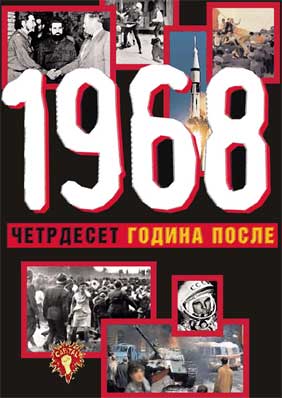
1968 – Forty Years Later represents a collection of historiographical works of 26 authors from different countries (Serbia, Russia, Czech, Croatia, Bulgaria, and Germany) about the international relations and the foreign-relation temptations of Yugoslavia and also about the domestic circumstances in Yugoslavia during the years 1967-1969. The first part of the book is dealing with topics like: 1968 as the turning-point for Eastern Europe, „Prague Spring“ after the increase of Soviet pressure on Czechoslovakia (July 1968), „Prague Spring“ and the attitudes of the Hungarian leadership, its influence in Bulgaria, the phenomenon of the Czechoslovak opposition after the defeat of the „Prague Spring“ in 1969-1972, the year 1968 as a point of departure of the new Yugoslav foreign policy orientation, Yugoslav reactions to the crisis in the Middle East and dictatorship in Greece, Yugoslav-Soviet, Yugoslav-Romanian and Yugoslav-Italian relations in the days of the Soviet intervention in Czechoslovakia, Yugoslavia relations with the Federal Republic of Germany in 1960s, Yugoslav economic emigration in West Germany and the visit of the crew of Apollo 11 to Yugoslavia in 1969. The second part of the book is consisted from the works about Yugoslavia's activities in domestic and foreign policy after the intervention of the Warsaw Pact in Czecholsovakia in 1968, Yugoslav People’s Army’s ordeals in 1960s, the echo of the global student revolt of 1968 in Yugoslav youth and student press, student demonstrations in Belgrade and Yugoslavia in 1968, the case of Krunoslav Draganovic as one aspect of Yugoslav − Vatican relations, liberalization of Yugoslav theatre, and „rebellious“1968 in Istria. Most works are based on the new historical researches and they, after forty years, try to give a new answer and point of view on the issues connected with the happenings in 1968. The book contains also Chronology of the important events in 1968 and Bibliography of the selected Works on 1968.
More...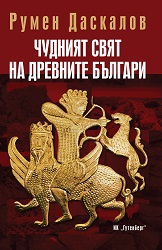
This is a book about the history and the origin of the Proto-Bulgarians and their way to the Balkans and it follows the concept for modern Proto-Bulgarian history. What can be called "modern" is the fact, that the sources on which this book is based are rather different from the well known and traditionally used Latin and Byzantine authors, but among the reviewed sources are Chinese, Indian, Arab, Armenian and other texts of different types ans genres. The author Rumen Daskalov is giving his own interpretations and the purpose of his analysis is to emphasize, summarize and promote the best accomplishments of the Bulgarian school of Proto-Bulgarian history.
More...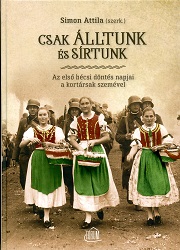
This book describes the daily life in southern Slovakia in the period of the decision made on the First Vienna Award and of its enforcement as reflected in contemporary texts (diaries, memoirs) and photographs. The volume contains 19 texts and is illustrated by about 180 photos reporting on the processes taking place in southern Slovakia in the autumn of 1938. These mainly reveal pre-war tention in the first days of the Munich Agreement, the expectations surrounding the Hungarian–Slovak border talks, and the delight of the Hungarian population living here over return to Hungary.
More...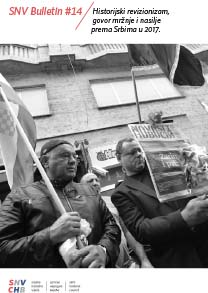
"A group of about three to four people in their 40s approached us. They were visibly inebriated and started swearing at 'our Chetnik mother', asking 'how come we were not ashamed to come to Zagreb'. My wife and I looked at each other and remained silent. What were we to do, we were here with small children? We waited for their rampage to end but it went on for a while and then they left with the message that they would take care of us and the children, should we ever return", Dušan Kovačević, the director of the Novi Sad music festival Exit, said during his visit to Zagreb. The incident occurred in mid-February 2017, the same month that stickers appeared on the streets of Vukovar with the invitation to hang Serbs, and that members of the extreme right party Autochthonous – Croatian Party of Rights (A-HSP) marched through the Croatian capital dressed in black. Last February will also be remembered as a month when an Ustasha graffiti appeared on the Orthodox church of Holy Trinity in Bjelovar, a protected cultural monument. Also in February, the Social Democratic Party (SDP) MP Milanka Opačić, received police protection because of the photomontage inspired by her Serb nationality, published by the portal Dnevno.hr. Dalmatia was no exception to this trend. At the end of February, organisers of a carnival in Kaštele near Split, torched before hundreds of spectators and effigy of Milorad Pupovac, the president of the Serb National Council (SNC) and of the Independent Democratic Serb Party (SDSS).
More...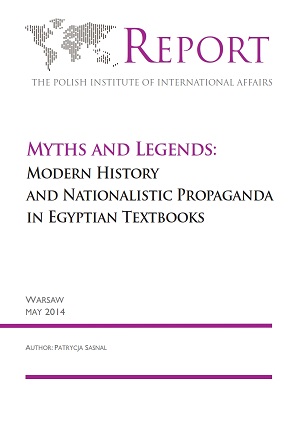
In 2011, Egyptians overthrew their authoritarian president, Hosni Mubarak. Since then, tumultuous shifts in civilian rule and military interventions have marred Egypt’s transition to democracy, prompting speculation about the potential for reversion to an authoritarian system. How revolutionary was Egypt’s change and how much of it remains? Among the most basic barometers of overall systemic revolutionary change is the education system and, more precisely, the way history is taught. “History is written by the victors,” Winston Churchill was to have remarked, and so history is often rewritten after a revolution. The victors usually want the old narrative removed and their own, new vision presented in textbooks, as they are understood to shape young people’s understanding of the past and present, thus they are conducive to the survival of the new regime.
More...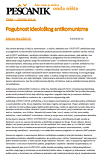
Više od dve decenije u Srbiji su zanemarene i, u suštini, odbačene sve vrednosti antifašizma koje su proglašene za anacionalne komunističke podvale poturene zavedenom srpskom narodu, iako je sam pojam antifašizam, ispražnjen od sadžaja i neretko sasvim pervertovan, ipak zadržan, kao neupitni izvor legitimiteta. Ukratko, antifašizmom je proglašeno ono što antifašizam nije, uz odbacivanje svega ili gotovo svega što antifašizam jeste. Te vrednosti izvornog antifašizma su internacionalizam, tolerancija prema raznim oblicima različitosti (iako ni u samom antifašizmu nisu sve razlike koje se sada smatraju legitimnim takvima oduvek smatrane), emancipacija od esencijalizovanja tih različitosti, i naročito, marginalizovanje nacionalnih, verskih, rodnih, seksualnih, političkih i drugih različitosti kao politički bitnih karakteristika i faktora moralnog, ili ma kog drugog vrednovanja čoveka. Antifašizam je i sada, dakle, u tradiciji onoga što istorijski jeste, progresivna ideja i moralni stav, pre nego ideologija, i podrazumeva konstantno širenje baze slobode i tolerancije. Sasvim zakonomerno, kao što je diskriminacija ključna reč fašizma, tako je antidiskriminacija ključna reč antifašizma.
More...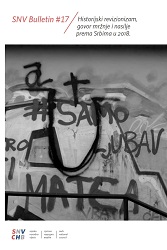
Pučka pravobraniteljica Lora Vidović objavila je 20. novembra 2018. godine analizu naslovljenu: Relativizacija zločina NDH narušava temeljne vrijednosti Ustava, a izostanak reakcija otvara prostor mržnji. U tom tekstu proziva čitav niz državnih i crkvenih institucija te desnocivilnih organizacija za toleriranje i poticanje rehabilitacije nasljeđa tzv. Nezavisne Države Hrvatske i ustaškog režima. Analiza pučke pravobraniteljice svakim slovom pogađa suštinu onoga što se u 2018. Godini iskristaliziralo kao predominantan trend u javnom prostoru, s posebnim naglaskom na djelovanju Rimokatoličke crkve, Hrvatske radiotelevizije, raznih ratno-veteranskih udruženja, desnih udruga civilnog društva, ali i samih vrhova državne vlasti. Tako, primjerice, kaže: “Unatoč tome, eksplicitni ustaški ili nacistički simboli ili oni koji asociraju na ustaški pokret prisutni su u javnom prostoru u Hrvatskoj. Tako se posljednjih godina tiskaju knjige, pišu i objavljuju članci i intervjui, održavaju tribine, snimaju dokumentarni filmovi i emitiraju televizijske emisije u kojima se negira ili umanjuje zločinački karakter NDH. Osim u huškačkim i nacionalistički obojenim medijima, ovakvi stavovi iznose se i u službenom glasilu Katoličke crkve, a prodrli su i u prevladavajuće medije, uključujući i na javnu televiziju.” [...]
More...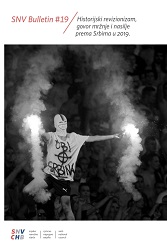
U maju 2019. godine odvijala se kampanja za izbore za Europski parlament na kojima je sudjelovala i Samostalna demokratska srpska stranka (SDSS), vodeća stranka Srba u Hrvatskoj, koja ima tri saborska zastupnika u aktualnom sazivu Hrvatskog sabora. SDSS je odlučio izaći na izbore u uvjetima u kojima je cijela zemlja jedna izborna jedinica te na kojima valja osvojiti minimalno 5% glasova kako bi se dobio mandat u Europskom parlamentu. Iskorak je to kojim je jedna manjinska stranka ušla u arenu borbe za svog predstavnika u Europskoj uniji pod nekoliko velikih slogana u kojima se dovitljivo kombinirala ćirilica i latinica, odašiljajući poruku da je i Srbima mjesto u Europi, ali i da proširenje Europske unije na zapadni Balkan mora biti jedan od prioriteta europske politike. Središnja poruka SDSS-a u toj je kampanji bila “Znate li kako je biti Srbin u Hrvatskoj?”, što je odzvanjalo s mnogobrojnih SDSS-ovih plakata, a odgovor na pitanje iz poruke nametnuo se sâm od sebe, i to u vidu samih činova koji su tema ovog Biltena — razina huškačkih, prijetećih i mrzilačkih poruka koje su se ubrzo našle na tim plakatima, u količini kao ni na jednim drugima, učinila je kampanju SDSS-a uspješnom, a politički cilj ostvarenim. Bez obzira na to što SDSS nije dobio dovoljno glasova da bi dobio predstavnika u Europskom parlamentu, doista je odgovoreno na, na prvi pogled, retoričko pitanje: “Znate li kako je biti Srbin u Hrvatskoj?”. [...]
More...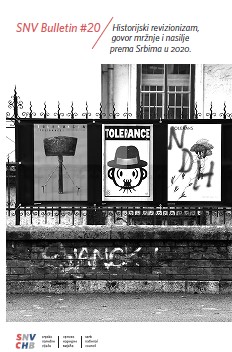
The parliamentary general election took place on the first Sunday of July. The Independent Democratic Serb Party stood candidates for the election, drawing the public's attention with its campaign, conducted under the slogan “be what you are, respect what you're not” — more specifically, with the three videos it released as part of the campaign. In the first video, waiters are setting up a restaurant terrace to host a wedding; a female waitress posts a sign at the entrance, kindly asking the arrivals not to sing Ustasha songs, as there are Serbs among the invitees. The second video, called “Pupi's to blame for everything” drew most public attention. IDSP president Milorad Pupovac is the protagonist in the self-ironic and witty video, which lays blame for absolutely everything at his feet: from the Nineties war, all the way to planning on micro-chipping the population with Bill Gates and setting up the second wave of coronavirus infections in Croatia. The third video depicts the construction of a small wooden bridge in the Banija region, which made life easier for a Serb family. The video was filmed at the location where a bridge used to exist. The motto of the video is “bridges connect people, fools destroy them — don't be a fool”.
More...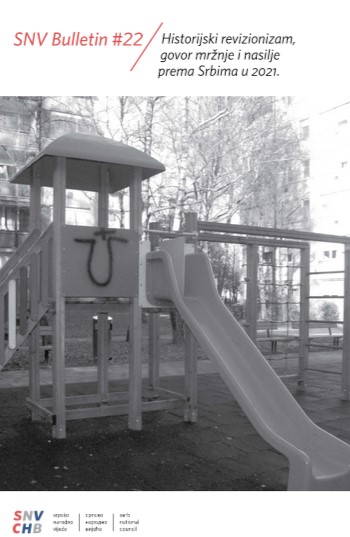
The Bulletin before you gives an overview of events in 2021 that were motivated by prejudice, intolerance and hatred of Serbs in Croatia. It goes beyond the framework of official statistics, making use of a series of more or less familiar events to show how society breathes, thus bearing witness to an atmosphere that is very much present, yet is not always visible in numbers, nor publicly recognised and acknowledged as problematic. In fact, things need to be told like they are — in Croatia, even today, deep into the 21st century, Serb ethnic origin is still subject to intolerance and hate. The reactions elicited by the messages, sentences, drawings and other expressions of hatred towards Serbs, that is, most often their absence, or indeed denial of the problem, are no more than burying our collective heads in the sand and downplaying the significance of such expressions. This way, the moment when new generations will be able to grow up without having to learn not to accept the other merely due to their ethnic origin, is in increasing abeyance. This is why the exceptional value of this overview lies precisely in its power to raise awareness of the problems faced by people around Croatia merely because they or their family members are, or are even just assumed to be, Serbs. Likewise, this Bulletin can serve as a kind of traffic-light warning for all those tasked with bringing about positive changes, including by all means the relevant ministries — of the Interior, Justice or Education, as well as the State Attorney's Office and judges, not omitting politicians at all levels — with clear indicators of the deviations that in a democratic society should not have the status of acceptable patterns of behaviour.
More...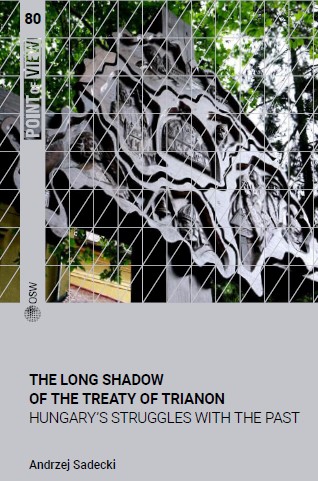
The 1920 Treaty of Trianon, which sealed Hungary’s loss of a third of its territory, is perceived as the country’s greatest national tragedy. The breakup of the multi-national Kingdom of Hungary, as a result of which large Hungarian-speaking populations found themselves in neighbouring countries, was a pivotal event which influenced Hungary’s national identity as well as its internal and foreign policies for the next one hundred years. Hungary responded to the Treaty of Trianon by developing various concepts to reclaim the lost territories, but also with efforts to build good relations with neighbours and develop policies towards the Hungarian minorities in other countries.
More...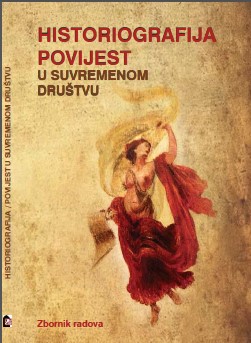
The proceedings before you brings together the collected works based on a smaller part of the presentations at the round table "Historiography/History in Contemporary Society". The meeting was held on October 11 and 12, 2011 as part of the celebration of the 50th anniversary of the scientific work of the Croatian Institute of History. The aim of the meeting was to determine historiographical trends over the past half century and to question the diverse research perspectives and methods of using and processing information about historical heritage, to examine different historiographical discourses and the interaction of these discourses with political and educational discourses and to consider their relationship to the phenomenon of memory. Our desire was also to assess the contribution of the Croatian Institute of History and the scientific work of its employees to historical research.
More...